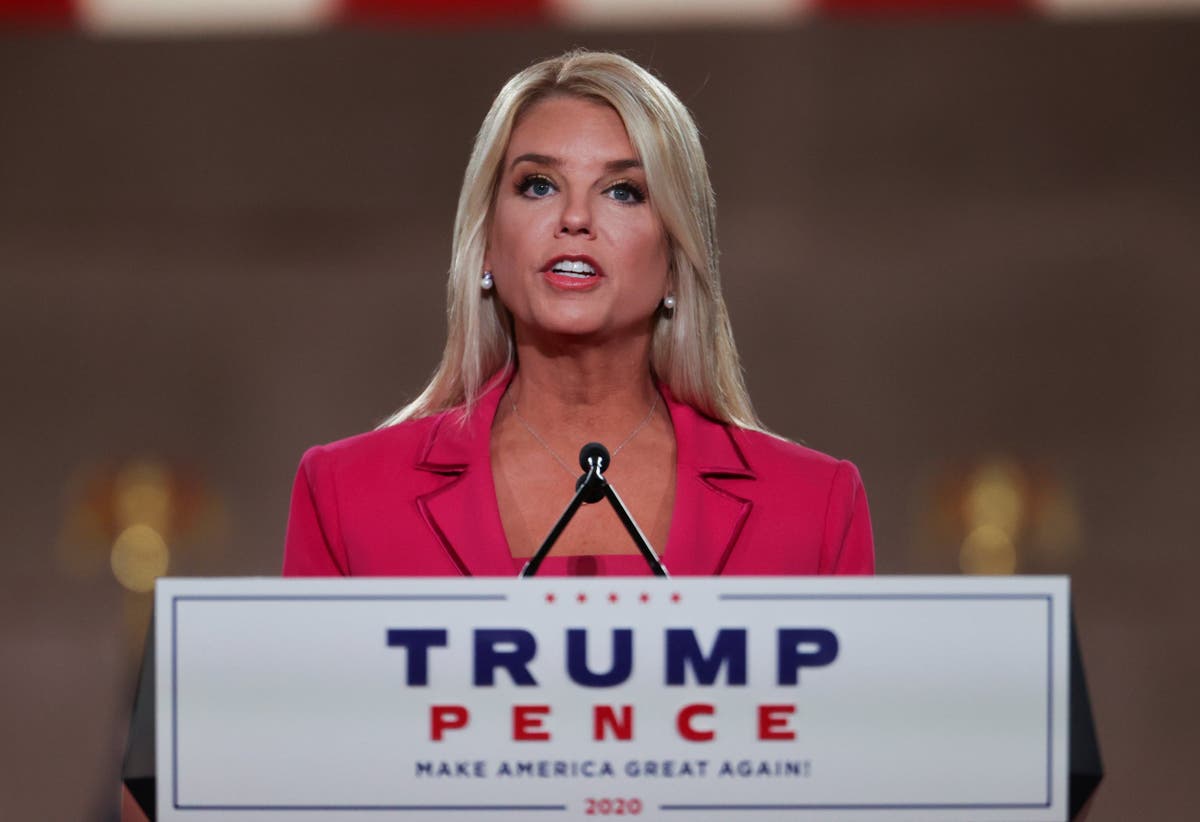
The Colorado legislature's budget drafting body, stung by criticism from the governor over hiking Medicaid provider rates last spring higher than what he wanted, bit back when Gov. Jared Polis met with the committee last week to discuss his 2025-26 budget proposal. Gov.
Jared Polis and members of the Joint Budget Committee sparred over the size of his proposed cuts. Polis effectively argued that his proposal responsibly makes budget reductions, while lawmakers questioned his decision to fund projects or services — such as landscaping for the governor's mansion — when the state is practically in "recession" mode when it comes to budgeting. A veteran legislator said the governor's budget proposal is not serious; the governor's budget chief argued that the proposed budget reduces or eliminates programs that aren't the "best use of dollars.
" The budget, as proposed by Polis, cuts $638 million in general fund, including targeted reductions in provider rates and changing the timeline for implementing the state's new school finance funding formula from six years to seven years. The governor also proposed privatizing Pinnacol Assurance, the state's workers compensation insurer of "last resort," a move that would generate about $100 million per year that would go to the state's pension plan. The budget, however, isn't balanced, as noted by The Joint Budget Committee staff on Nov.
12. That's because independent state agencies — judicial, attorney general, secretary of state and treasury — submit their budgets independent of the administration. The administration estimated a 3% increase, but, according to JBC Director Craig Harper, the judicial budget request came in at three times that, an increase that put the proposal $50 million out of balance.
What didn't make it into the governor's proposal: the results of ballot measures adopted by voters on Nov. 5, including Proposition KK. which levies an excise tax on the sale of firearms and ammunition to pay for crime victim support services, mental health services for veterans and youth, and school safety programs.
The measure is expected to generate about $39 million annually, beginning with its first full year in 2025-26. That measure was referred to the voters by majority Democrats in the General Assembly. Another successful measure, Proposition 130, requires the General Assembly to spend about $350 million per year to recruit, train, and retain local law enforcement officers.
The measure, however, does not specify a time when these funds are to be provided, and, given the tight budget year, it's unlikely to find its way into the 2025-26 budget. The proposal came from Advance Colorado, which describes itself as a group "pushing back on the progressive policies that have put our state on the wrong track." During a JBC staff presentation on the governor's budget on Nov.
12, the criticism over Medicaid provider rates was tagged as "petty" by Sen. Barbara Kirkmeyer, R-Brighton. Here's the issue: Toward the end of the budget process during the 2024 regular session, the JBC decided to hike provider rates for Medicaid above both the recommendation of the governor and JBC staff.
Those rates have been so low that it has raised concerns that Medicaid patients could have trouble finding the care they need. The governor's budget proposal for 2025-26 asks that the JBC to reduce those rates — and that didn't go over well with the committee. The following day, Polis sat down with the JBC to go over his proposal, and the fireworks began.
The governor said he has taken steps to drive more governmental efficiency, such as requiring state agencies under his control to implement 1% across the board cuts in personal services and operations. That came with more flexibility for state agencies by combining those two budget lines. JBC members criticized the governor over some of his spending and cutting proposals.
Rep. Emily Sirota, D-Denver, said that while she found some of his proposals "interesting and exciting," she is concerned about covering a $1 billion hole in the budget, as well as protecting core services and vulnerable populations. "There are a couple of components in this budget request that give me real pause," she said, such as the changes to the Medicaid provider rate and rolling back decisions the committee made in the last session.
She also questioned the Pinnacol proposal, asking where those employers and workers would go for worker compensation insurance. More needs to be done to find efficiencies, Sirota said, adding, "There are going to be a lot of difficult choices to be made." JBC Chair Sen.
Jeff Bridges, D-Greenwood Village, expressed concerns about K-12 education, as well as the Pinnacol privatization. He asked Polis what else he would have in mind if they don't go forward either with Pinnacol or cuts to the provider rates. The list, Polis said, included bigger cuts to higher education – in the 40% to 50% range.
When dealing with what his office described is a $680 million shortfall, "there's only a few areas of the budget that have that kind of money," he said. Kirkmeyer told the governor she has a hard time taking his budget proposal seriously. She pointed to what she believes is about a $150 million cut in education funding, as well as underfunding in higher education by about $60 million, which would drive tuition increases of 6% or 7%, in her estimate.
Then there's cutting $3 million in rural healthcare funding but at the same time proposing $2.4 million to build a ticket booth at the state fair. She called that proposal "absurd.
" As for the provider rate issue, Kirkmeyer said the state's healthcare system is in crisis, with 25 counties that don't have any maternal healthcare. Community mental health clinics are eliminating services and laying off staff, in part because of insufficient provider rates, she said. Kirkmeyer said she was told the cuts to provider rates would be across the board, although Polis had said otherwise when he spoke to reporters on Nov.
1. That translates to about $40 million, including $19 million in cuts for pediatric behavioral therapy services. She also pointed to a request for $1.
5 million for landscaping services at the governor's mansion, and $5 million for celebrating the state's 150th anniversary in 2026. And despite $50 million in the 2024-25 budget for land use proposals, there's a request for $600,000 for regional codes for manufactured housing that would supersede local government codes, she noted, along with $285,000 sent to Florida to help that state with the devastation from Hurricane Milton. Kirkmeyer said she did not believe the governor had the authority to tap the state's emergency reserve to send money to another state.
"We are in a self-imposed recession," Kirkmeyer said. It's not for lack of revenue — it's because of over-spending, she said. "This request just doesn't appear to be a serious attempt for funding or meeting our most critical needs in our state," nor the $1.
4 billion shortfall that will be needed to balance the budget, she said. Polis, in his response, said he intends to see tuition rates go no higher than 2.4%, the rate of inflation, stating higher education education institutions have to be able to deliver their educational product at costs that are close to the rate of inflation.
"They cannot simply allow their costs to go up 7% or 8% a year and expect the general fund to cover that," he said. Most of the requests Kirkmeyer identified are one-time only, such as a proposed walkway between the state Capitol and Civic Center Park. Cutting them won't help cover the cuts to Medicaid or school funding, Polis said.
Polis pointed out he could have reopened discussions around the budget stabilization factor, cut the increase to higher education in half or cut provider rates across-the-board by 1%. "We didn't do any of those things, but I don't see a lot of other things that can be put together to add up to $680 million," he said. Kirkmeyer noted that since Polis has been in office, state employment, known as FTE or full-time equivalent, has grown by about 1,000 per year.
She questioned why he isn't imposing a hiring freeze or requiring a much larger across-the-board cut of 10%. Polis pointed to the 1% cut he required of state agencies, something they weren't happy with, he told the committee. Mark Ferrandino, director of the office of State Planning and Budgeting and the governor's budget director, explained the administration tried to consolidate duplicative programs and looked for targeted reductions.
"When we saw programs where we felt it wasn't the highest, best use of dollars, we were able to reduce or eliminating those programs," he said. Asking for a 10% reduction is a hard thing, Ferrandino added. That would mean asking which statutory provisions or programs they would eliminate — for which there are constituencies or support from legislators.
"I don't think folks have grasped the magnitude of what we have to do in the budget this year," Bridges, the JBC chair, said. "There are choices that we are going to have to make. There's no way you cut $635 million from a $14 billion budget without some people feeling significant pain.
" That's a message he said is missed by lawmakers outside of the JBC, as well as by lobbyists and the public. Add on top of that the $350 million that voters said has to be spent on public safety and that's a billion-dollar hole in a $14 billion general fund budget, he said. "We are trying to sweep one time funds where we can," Polis replied, adding his administration is trying hard to find ongoing savings — "because that's what you need to prevent the JBC from making devastating cuts every year.
".














